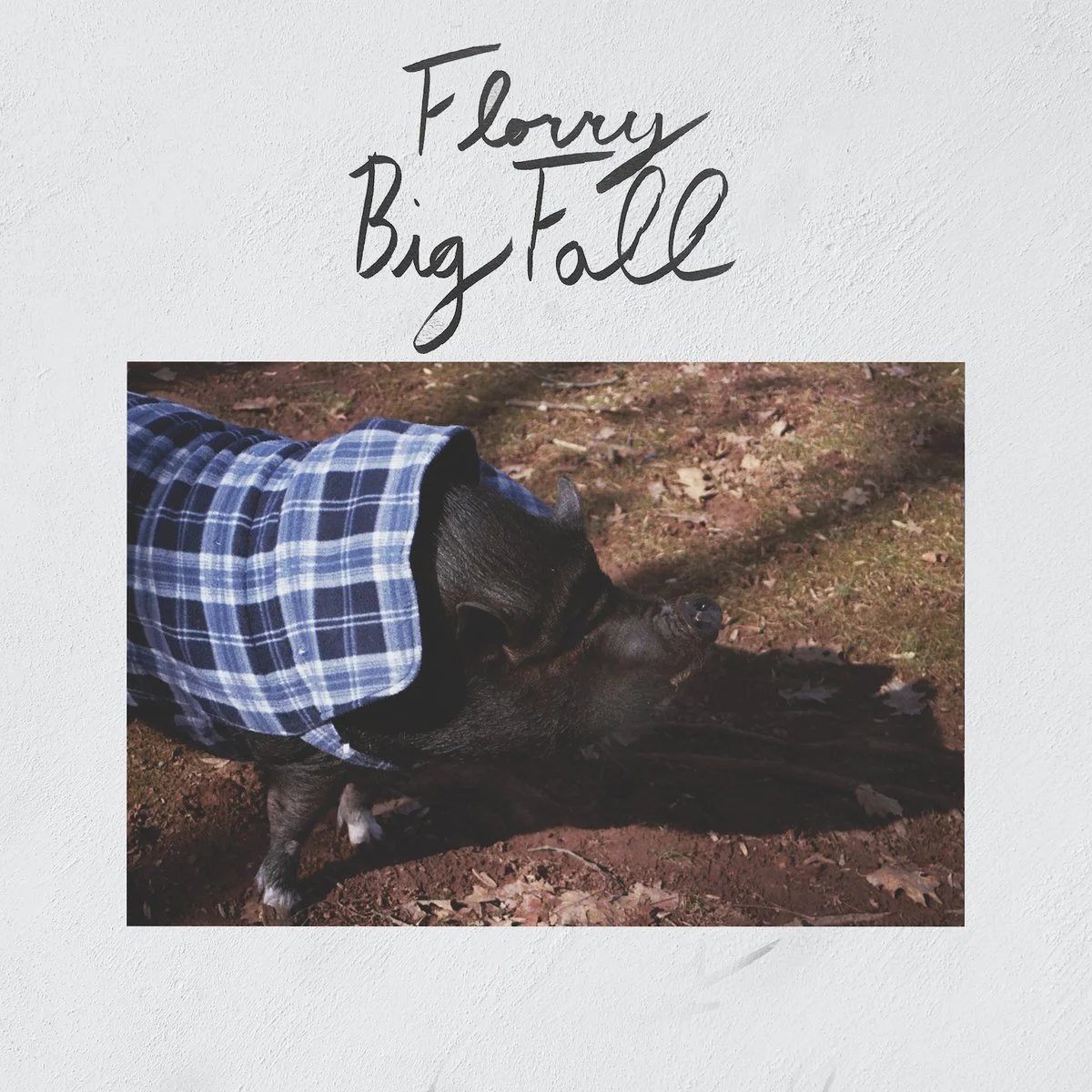FLORRY - Big Fall LP
FLORRY - Big Fall LP
12XU
Gram Parsons coined the phrase "Cosmic American Music" to describe the synthesis of country, blues, rock and soul that he traded in. Sheridan Frances ‘Francie’ Medosch wouldn’t be born for another 28 years after Parsons’ 1973 death, but that Cosmic American sound was waiting for her all the same. On 'Big Fall', she embraces it like an old friend.
Medosch grew up outside of Philadelphia in a family home that encompassed three cats, a dog and a pig. Her mom loved music; she played all kinds of stuff around the house, but mostly alt-country like Gillian Welch and Wilco. 'Yankee Hotel Foxtrot', the seminal 2002 album by the latter became formative to a young Francie’s love of music - “I never really got into 'Sgt Pepper' or anything, so I think that album kinda took the place of that.” She learned violin for a while, then she was a natural on piano, but that stuff bored her. Eventually, her mom bought her a guitar. “I was actually very bummed out at first. I think I wanted an Xbox or something that year. But I came around to it very quickly,” she laughs.
As a teenager she got into obscure underground rock and power pop, influences she channeled in the band she initially named Francie Cool, which would later transition into Florry (these days it’s a solo project, in which she’s backed by Jared Radichel on bass, John Murray on guitar and Joey Sullivan on drums). In 2018, at the age of 17, Medosch put out her debut Florry album 'Brown Bunny' (Sister Polygon). The following year, she went out to Willow, New York - a tiny hamlet outside of Woodstock - and recorded a follow-up album with producer Paco Cathcart that she ended up shelving. Backed by Theo Woodward on drums and Pete Gill on bass, it was dark, and angsty, consisting of songs written between the ages of 16 and 18 and reflecting the depression that defined that time for her.
During the pandemic, she began writing again. Her headspace had changed a lot. She was much happier and embraced “absurdist existentialism” - “where you realise that nothing really has any meaning, and that it’s pretty funny that we’re here at all.” She was also bored of indie rock, and for her new songs she looked towards her upbringing among country and folk music, and her fascination with Parsons’ Cosmic American Music. “There’s something about that kind of music that just makes me feel really good inside,” she says. Her main goal was just to write songs that felt good, that translated her newfound positivity. “That was the biggest change for me, just writing and playing music when I’m feeling good, instead of when I’m feeling sad.”
With 6 of those songs home-recorded with the early iteration of her new lineup, she pulled another 4 from the Willow sessions, a way of closing one chapter and opening a new one. There’s a clear split between the old songs - dark, sad, confused - and the new - self-assured, fun, free. Opening track ‘You Don’t Know’ was the last one to be written, and the one that Medosch feels most accurately captured the spirit of Cosmic American Music. It’s a Neil Young-indebted, pedal steel-adorned country tune, the melody of which was born from a dream Medosch had about the Staple Singers. She addresses a loved one who is “fucking their life up”: "You don’t know what you’re doing / And you’re hurting so many people".
Meanwhile, Medosch channels traditional country with the honky-tonk piano of "Say Your Prayers" and the rollicking bassline of the title track "Big Fall". On both, she is full of optimism, claiming the idea of a joyful future with exuberance. These are the record’s lightest moments; its heaviest are the Elliott Smith-esque ‘Dream Diary/Growth’ and the slowcore closing track ‘Lovely’, where Medosch conducts a bitter post-mortem on a toxic friendship, singing despairingly: ‘When you tell me to quit being so loud, I will / When you tell me to quit being myself, I will”. It ends the album by “collapsing in on itself”, with a sudden compressed crunch followed by interlocking guitars that spiral towards the song’s conclusion like they’re circling a drain.
Musically, Medosch comes all the way out of left field on the punky ‘Older Girlfriend’ and the dance track ‘Everyone I Love You’; these feel like moments of total unbridled glee. Of the latter, which was influenced by both Philadelphia’s club and rave scene and Neil Young’s 1982 album 'Trans', Medosch says, “For like a month, it was all me and my friends would listen to, ‘cause everyone was so pumped up on it. Without a doubt, it’s the weirdest track on the album. But I love that song.”
The emotional heart of the album is arguably "Jane", one of the Willow tracks, which recounts a major turning point for Medosch. In the lowest depths of depression, she watched "Jane", the 2017 documentary on Jane Goodall. In the theater, she broke down in tears as she saw the passion and pride with which Goodall spoke about her work. In that instant, Medosch knew that was what she wanted for herself. To love herself; to be proud of who she was and what she had done. Now here she is, presenting 'Big Fall' to the world, and she’s proud.
- Mia Hughes

